5 Unexpected Mood-Boosting Foods You're Probably Eating
You know superfoods are good for you, but some of the everyday foods you eat may provide a dose of happiness, too.
By Jessica Migala
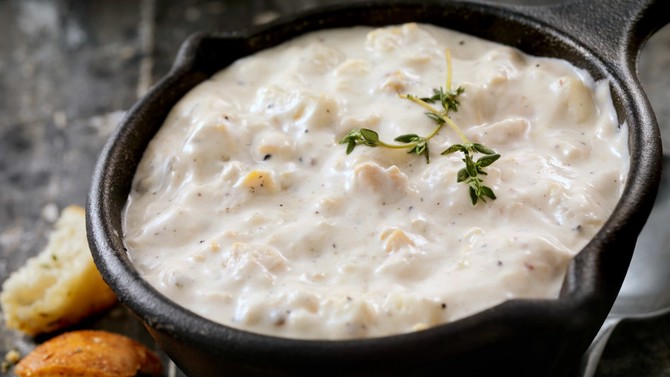
Photo: LauriPatterson/istock
Clam Chowder
Go ahead, dig into a nice big bowl of chowda. Clams are "the top source of vitamin B12, which is vital to brain health, good mood and focus," says Drew Ramsey, MD, psychiatrist and author of Eat Complete: The 21 Nutrients That Fuel Brainpower, Boost Weight Loss and Transform Your Health. B12 is used by your body to make hormones called neurotransmitters, which are necessary to keep your attitude up. In fact, one cup of chowder offers more than 200 percent of your daily need for the vitamin.
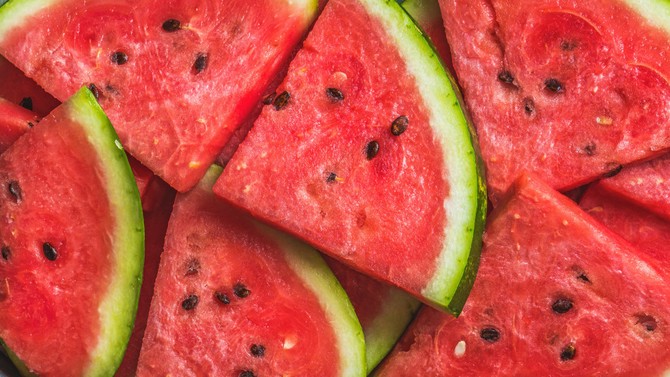
Photo: Foxys_forest_manufacture/istock
Watermelon
Who knew this juicy fruit could lift midday fog? Watermelon contains citrulline, an amino acid that helps open up blood vessels and boost bloodflow. "The better the bloodflow to your brain, the better your brain cells function and the more clear-headed you think," says Elizabeth Somer, RD, author of Eat Your Way to Happiness. It helps you gain perspective on your problems and make daily to-dos seem doable. What's more, watermelon is, well, water-rich. "Eating a big slice is like drinking water," says Somer. That's a great thing because staying hydrated is vital to maintaining a happy mood, say researchers. And finally, watermelon is a major source of the antioxidant lycopene, which helps reduce inflammation, a major player in mood disorders.
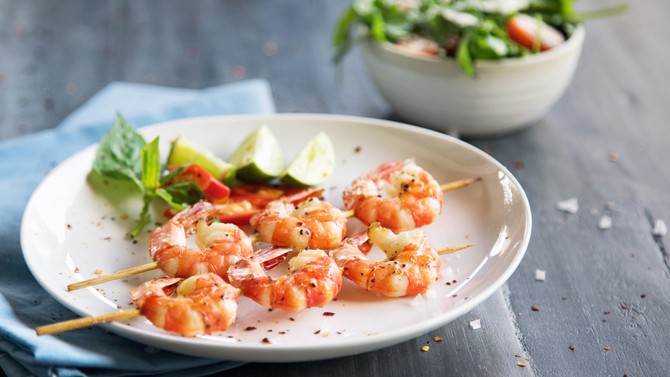
Photo: Xsandra/istock
Wild Shrimp
Seeing a seafood trend here? If you don't get the two fish meals a week that the American Heart Association recommends for getting enough omega-3s, you may want to consider shrimp. "Wild shrimp are a good source of omega-3 fats, and an easy entry into seafood," says Ramsey, pointing out that one serving contains about 20 percent of the omega-3s found in one serving of wild salmon. (Farmed shrimp is on Monterey Bay Aquarium's Seafood Watch list of shrimp picks to avoid for its non-environmentally friendly methods, making wild a better choice.) Filling up on omega-3s can reduce the risk of depression, likely because the nutrient lessens inflammation and protects neurons in your brain, shows research. Having the right balance of omega-3 and omega-6 fatty acids has also been associated with less neuroticism, or the tendency to be a Negative Nancy about situations.
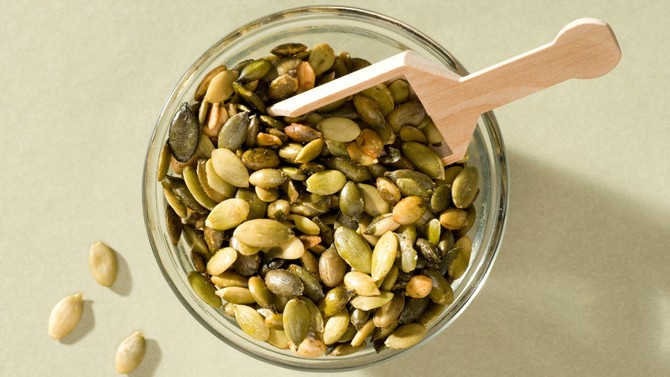
Photo: GaryAlvis/istock
Pumpkin Seeds
And you thought these were just a tasty snack. "Pumpkin seeds provide an incredible amount of zinc and magnesium—and are easy to add to almost anything, from yogurt to stir-fries," says Ramsey. Thanks to its role as a neurotransmitter and an antioxidant, zinc can keep you peppy, and one small study found that zinc supplementation may reduce depression and anger. Magnesium, on the other hand, "balances out your body's stress response, helping you to handle tension and worry better," says Somer. A one-ounce serving of pepitas is just 153 calories but also nearly 40 percent of your daily requirement for magnesium, and 14 percent of your need for zinc.
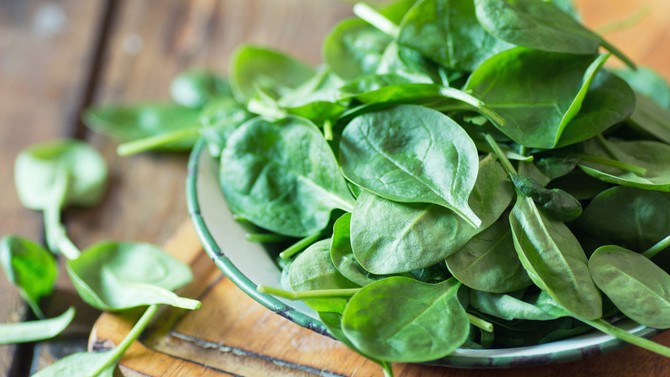
Photo: Lecic/istock
Spinach
Dark greens are one of the best sources of folate, says Somer, a vitamin that's critical for brain functioning and protection. Considering many young women don't get the recommended 400 mcg per day, says Somer, you may feel like you're lagging during the day. Eat the right amount so you can feel at your best and on top of your game. The greens also contain iron, something women who get their period tend to lack, which affects your energy levels. Spinach also contains vitamin C to help boost your body's absorption of iron. Collards, baby lettuces and Swiss chard all count, too. As long as it's dark green, it's a win.
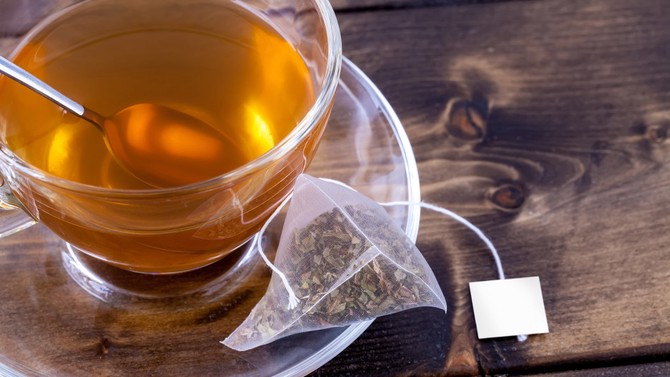
Photo: Simotion/istock
Bonus Drink: Tea
You know that coffee can give you a pep in your step, but there's another brew that can do it, too: tea. For one, consuming 68 mg of caffeine a day is associated with a reduced risk of depression, according to a meta-analysis published in the Australian & New Zealand Journal of Psychiatry. (For reference, a tall Earl Grey tea at Starbucks contains 40 mg of caffeine.) However, the drink does more than just buffer the moodiness—it can make you happier in the moment. Past research that looked into the impact of caffeine on mood also found that at least one cup of tea was necessary. Caffeine, the researchers explain, inhibits certain neurotransmitters that blunt brain activity and enhances other chemicals known to make you happy, like dopamine and serotonin. Coffee and tea drinkers report better cognitive functioning, including more focused performance, improved memory and lifted mood in the short-term.
Published 09/26/2017

